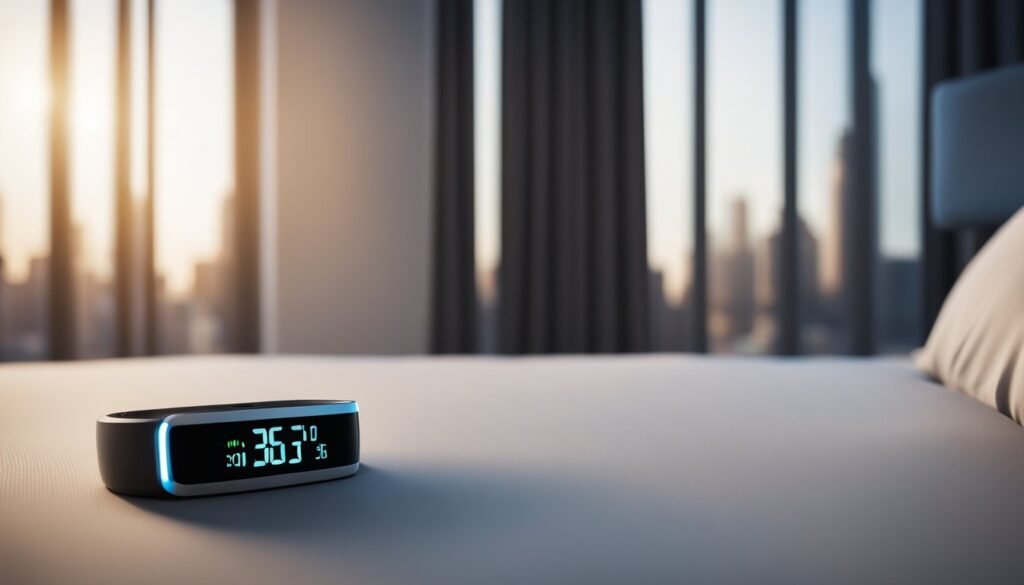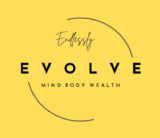Can Sleep Tracking Really Improve Your Health? Discover the Science Behind Better Rest
Tracking your sleep might be the key to enhancing your health and well-being. With sleep trackers becoming more accessible, you can gain insights into your sleep quality and identify patterns in your sleep habits. Tracking your sleep allows you to make informed decisions that could lead to better rest and, consequently, improved health.

Read: Most Discreet Health and Fitness Tracker
By capturing data on how long and how well you sleep, these devices can pinpoint areas needing improvement. From determining your sleep cycles to highlighting disruptions, a sleep tracker provides valuable information about your nightly rest. Understanding this data helps you make changes to optimize your sleep environment and routines.
Incorporating sleep tracking into your life doesn’t just mean wearing a device but actively engaging with the insights it provides. You may notice improved energy levels, mood, and overall productivity as you work on enhancing your sleep. These benefits make sleep tracking a powerful tool for those seeking better health outcomes.
Understanding Sleep and Its Stages

Sleep is a complex process involving various stages that contribute significantly to physical and mental health. These stages play distinct roles, influencing everything from memory consolidation to overall well-being. Understanding the nuances of sleep patterns and disorders is essential for optimizing your health.
The Science of Sleep Cycles
Sleep comprises several cycles, each with unique stages. A typical cycle lasts about 90 minutes and includes non-REM and REM stages. Non-REM sleep has three stages, shifting from light to deep sleep. Stage 1 involves drifting off, Stage 2 features a relaxation of body functions, and Stage 3 is deep sleep, crucial for restorative processes. REM sleep, characterized by rapid eye movement, is vital for dreaming and cognitive functions. Experiencing balanced cycles is crucial for maintaining robust mental health.
Types of Sleep Disorders
Numerous sleep disorders can disrupt normal sleep cycles. Insomnia involves difficulty in falling or staying asleep, often impacting daily life. Sleep apnea is marked by interrupted breathing, leading to fragmented sleep and daytime fatigue. Narcolepsy causes sudden sleep attacks during the day. There are other disorders like restless leg syndrome and parasomnias, which include unusual behaviors during sleep. Recognizing and addressing these disorders is crucial in achieving quality sleep and preventing potential health issues.
Role of Sleep in Health and Aging
Sleep plays a pivotal role in maintaining health and aging gracefully. Adequate deep and REM sleep supports memory retention, emotional stability, and cellular repair. As you age, sleep patterns may change, often resulting in lighter and shorter sleep periods. Quality sleep remains essential to combating age-related health issues such as cognitive decline and chronic conditions. Understanding your sleep stages can guide you in making lifestyle changes that promote better rest and healthier aging processes.
Sleep Tracking Technology Explained

When exploring sleep tracking technology, it’s essential to understand the different methods of monitoring sleep and the capabilities of wearable devices. The accuracy and reliability of these technologies can vary significantly, impacting how you interpret your sleep data.
From Actigraphy to Polysomnography
Actigraphy and polysomnography are two commonly used methods in sleep tracking. Actigraphy involves using sensors to monitor rest/activity cycles, particularly helpful in analyzing basic sleep patterns like movement and heart rate over extended periods. It’s often utilized in wearable sleep tracking devices and provides useful insights into your sleep duration and quality.
Polysomnography, typically conducted in a clinical setting, is more comprehensive. It measures brain waves, oxygen levels, heart rate, and muscle activity, providing a detailed view of your sleep stages. While it’s the gold standard for diagnosing sleep disorders, its complexity makes it less accessible for daily monitoring compared to actigraphy.
Wearable Sleep Trackers and Devices
Wearable devices like fitbit and the Oura ring are popular tools for personal sleep monitoring. These wearable sleep trackers measure various indicators such as heart rate and movement to give you insights into your sleep cycles. The convenience of wearing these devices throughout the day allows for continuous monitoring without disrupting your routine.
They often come equipped with apps that provide detailed feedback on your sleep patterns, enabling you to identify trends and make informed decisions about lifestyle changes that could improve your sleep quality. The integration of smartphone apps with these devices enhances user interaction and data interpretation.
Accuracy and Reliability of Sleep Tech
The accuracy of sleep tracking technology can vary. Devices using actigraphy may sometimes misinterpret movement as wakefulness or sleep, affecting the precision of the data. Clinical tools like polysomnography are more reliable but not practical for everyday use. When relying on wearable sleep tracking devices, consider the specific metrics they offer and the context in which you use them.
Comparing results from multiple nights and understanding the limitations of each device can provide a more comprehensive picture of your sleep health. Evaluate whether the data aligns with how you feel each morning, as this can guide the way you use the information to improve your sleep habits.
Analyzing and Utilizing Sleep Data

Modern sleep trackers offer a wealth of data, providing insights into your sleep patterns, phases, and overall sleep quality. Effectively interpreting and utilizing this data can help you make informed adjustments to your sleep routine, ultimately promoting better sleep health.
Interpreting Sleep Tracker Data
Sleep tracker data can range from simple metrics like total sleep duration to detailed analyses including time spent in different sleep phases such as REM and deep sleep. Understanding these metrics is crucial for evaluating your sleep quality. Identifying disruptions during the night can help pinpoint issues like a noisy environment or irregular sleep patterns. A consistent sleep routine, free from disturbances, significantly enhances sleep health.
When reviewing your sleep data, pay attention to patterns rather than isolated nights. Look at how various environmental factors, such as noise levels or room temperature, might affect your sleep. Track weekly trends and how changes in your sleep environment or behavior impact your overall rest.
Improving Sleep Based on Data Insights
Once you’ve interpreted your sleep data, the next step is using it to take action. Adjustments could range from modifying your bedtime routine to changes in your sleep hygiene or environment. Small changes, like reducing screen time or ensuring a dark, quiet room, can have a significant impact.
Data insights might also suggest the best time for you to go to bed or wake up. Establishing a consistent sleep routine based on this information supports better sleep health. Use your tracker’s sleep quality assessments to identify successful changes and maintain habits that promote restful sleep. Identifying patterns in how your daily activities affect your sleep can help you tailor a personalized approach to improve your sleep quality.
Sleep Tracking and Overall Wellbeing

Sleep tracking devices can offer insights into how your sleep patterns affect various aspects of your health. Understanding these effects may inspire you to adopt changes that contribute to better physical and mental wellbeing.
Influence of Sleep on Physical Health
Your sleep greatly impacts your physical health. Poor sleep quality or conditions like insomnia can lead to health issues such as diabetes or heart disease. Monitoring aspects like heart rate, breathing, and oxygen levels might help in identifying sleep disorders like sleep apnea. For those looking to improve their overall health or participate in a weight loss program, tracking sleep may help to ensure the body receives adequate rest, aiding in recovery and metabolism regulation.
Sleep’s Impact on Mental Health and Productivity
The quality of your sleep also influences your mental health and productivity. Mental health conditions can be exacerbated by poor sleep, affecting your daily functioning. Ensuring you get a better night’s sleep by following a consistent sleep routine and maintaining good sleep hygiene is crucial. Sleep tracking can help you monitor your sleep patterns, allowing you to make adjustments that could reduce stress and improve focus, leading to increased productivity at work or school.
Incorporating Sleep Tracking into Healthy Lifestyle Choices
Integrating sleep tracking into your daily routine can support healthier lifestyle choices. Regular tracking provides data that can be used in conjunction with insights from a sleep clinic or a consultation with a sleep researcher. This data can guide changes to your sleep routine or sleep hygiene practices. Monitoring features like heart rate and breathing can enhance awareness about potential sleep disorders. By leveraging this information, you can make informed decisions that improve your overall health and wellbeing.
Related Readings:
- Most Discreet Health and Fitness Tracker
- 5 Best Anti-Aging Supplements Backed by Science
- Importance of Gut Health: Science-Backed Tips on Food and Habits to Enhance Wellbeing
- How to Add Decades to Your Life: Insights From Cutting-edge Science
- Biohacking: Top Techniques and Tools for Enhanced Longevity
- Best Foods That Boost Longevity: Science-Backed Nutrition for Healthy Aging
- Unlock Your Mind’s Healing and Manifesting Potential Through Meditation and Quantum Physics
- Ultimate Morning Routine to Boost Energy and Productivity
- How to Detox Safely: Science-Backed Tips for a Health Reset
- Do Nootropics Really Work? Ultimate Ways to Biohacking Mental Health Explained

